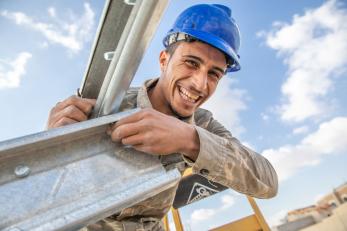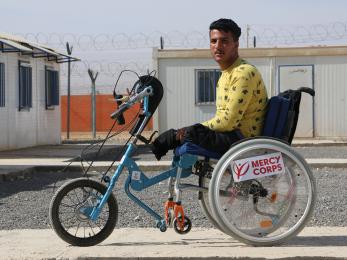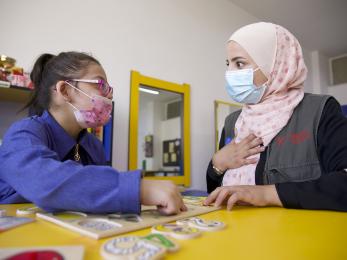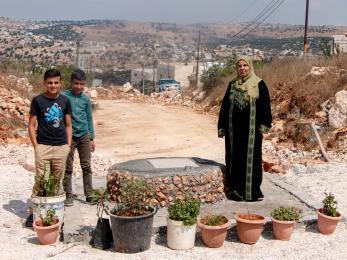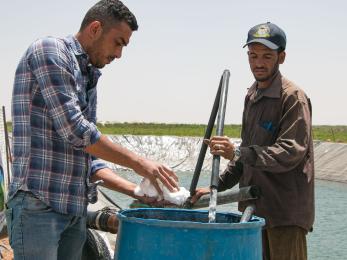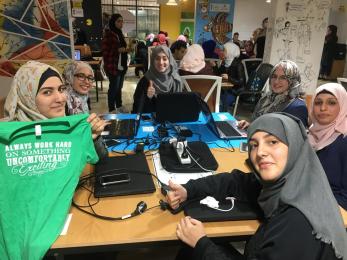Breadcrumb
Jordan
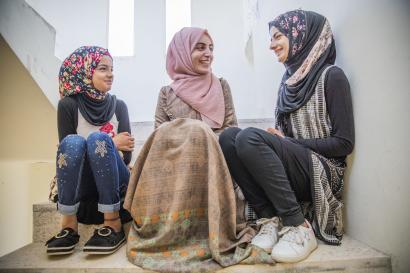
Since 2003, Mercy Corps has been working to support Jordanians as well as Syrian refugees who have fled to the country. In 2019, we provided assistance to 1.2 million people all across Jordan.
The context
Located in Western Asia and bordered by Saudi Arabia, Iraq, Syria, Israel and Palestine (West Bank), Jordan is a semi-arid country with a population of 10.5 million people.
By its neighbors, Jordan is often seen as a refuge from crisis. One in 14 people in Jordan are registered refugees. The country has become home to more than 650,000 Syrian refugees since the Syrian conflict began in 2011. Even though formal refugee camps do exist, most Syrians live outside of them.
This population influx has placed substantial strain on Jordan’s already overburdened education, health, public service and natural resource infrastructures, affecting both refugees as well as Jordanian host communities. High unemployment rates and a rising cost of living can also be a source of tension within communities. Around 36 percent of Jordanian youth are unemployed, and only 14 percent of women participate in the formal labor market — one of the lowest rates in the world.
-
1 in 14
-
36%
-
14%
-
3rd
Jordan is one of the most water-scarce countries in the world and relies on imports for 96% of its energy needs. With a rapidly expanding population (expected to double by 2047), meeting water demands has become more critical than ever.
Mercy Corps sees Jordan as a place beyond refuge, shaped by the crises on its borders, but not defined by them. We acknowledge these challenges while also seeing the opportunity for Jordanians and Syrian refugees to build better lives.
Our impact
From providing psychosocial support to helping entrepreneurs grow their businesses, we ensure solutions are community-led and market-driven. Underpinning all of our work is a determined focus on resilience — on the systems, institutions, markets and social structures that will continue responding to shocks long after Mercy Corps is gone.
Since 2003, we have worked to build:
- Resilient individuals
- Strong communities and good governance
- Environmentally sustainable economic growth for all
As Jordan faces COVID‑19, we are adapting our programs so that we can still safely support the communities we serve and help to prevent the spread of the virus.
Resilient individuals
We respond to the emotional, psychological and physical needs of Jordan’s most vulnerable populations including Syrian refugees, people with disabilities and at-risk adolescents.
Our approach to psychosocial support programming uses neurological science to help individuals understand and mitigate the impact of prolonged toxic stress on their brain and, subsequently, improve their ability to assess risk and make positive choices.
We place a particular focus on adolescents — an age group that is often faced with key life decisions that can affect the trajectory of their future — by building their agency and transforming their role from aid recipients to engaged, empowered leaders.
Lastly, for over 10 years, we have been leading efforts across the country to ensure children with disabilities have the resources and support they need to enroll and succeed in school.
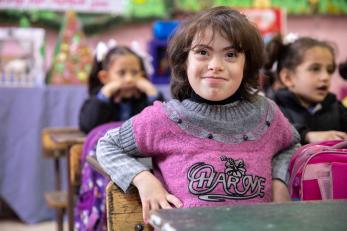
Strong communities and good governance
We strive to build strong, cohesive communities in which people have the ability and opportunity to meaningfully participate in local governance structures and processes.
We engage community leaders, civil society actors and local government representatives to strengthen the citizen-state relationship, amplify youth voices, support peaceful approaches to resolving tensions and build community resilience to the impact of threats such as climate change.
A key element of this engagement is our focus on building their capacity in interest-based negotiation, creating a community-based foundation that is able to identify, resolve and mitigate current and emerging tensions. Many of these tensions are grounded in access to resources, such as water or services. Our experience shows that infrastructure, especially when paired with increased community engagement and voice, can alleviate many citizen-state tensions.
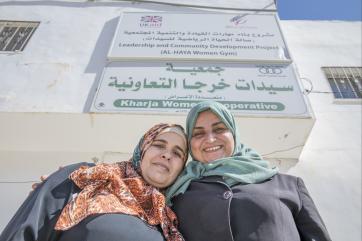
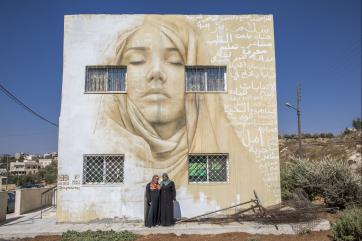
Environmentally sustainable economic growth for all
We support economic growth that does not further strain already scarce natural resources and that actively includes vulnerable populations.
Our programming strengthens demand-driven employability skills while also supporting market growth in key sectors to increase access to safe, equitable and decent work opportunities. Throughout, we leverage technology, create mentorship and networking opportunities, and promote financial literacy and inclusion. We work in close partnership with the public and private sectors to facilitate connections and create lasting change.
In a country that has one of the lowest levels of water availability per capita in the world, we place a deliberate focus on water conservation efforts. We also work to reduce the impact of water scarcity on economic growth opportunities and the most vulnerable segments of society.
